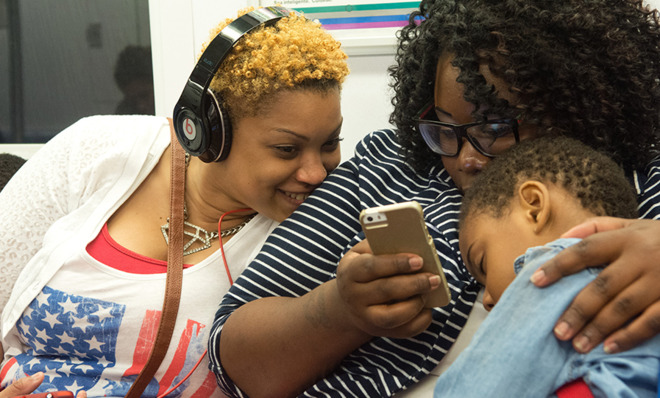What can your iPhone teach you about happiness?
Happiness apps are nearly useless. But they can still offer an important lesson.

A free daily email with the biggest news stories of the day – and the best features from TheWeek.com
You are now subscribed
Your newsletter sign-up was successful

A while ago I posted about using a happiness boosting iPhone app created by researcher and author of The How of Happiness, Sonja Lyubomirsky.
For the past couple months I've been using another app, In Flow.
What I liked about this one was that it replicates the method that big happiness researchers like Dan Gilbert have used in their studies. The app prompts you at random times and asks you to fill in:
The Week
Escape your echo chamber. Get the facts behind the news, plus analysis from multiple perspectives.

Sign up for The Week's Free Newsletters
From our morning news briefing to a weekly Good News Newsletter, get the best of The Week delivered directly to your inbox.
From our morning news briefing to a weekly Good News Newsletter, get the best of The Week delivered directly to your inbox.
1. How you feel
2. What you're doing
3. Who you're with
4. Where you are
A free daily email with the biggest news stories of the day – and the best features from TheWeek.com
So, over time, you can start to draw correlations. You might realize:
- You're happier at work than at home.
- You're not as happy when you're by yourself.
- Working hard is actually more fun than watching TV.
Problem is, it barely worked for me at all. It was nearly useless.
But that led me to an even bigger lesson.
What I realized was something that surprised me — but that makes total sense when I look at the research:
Where I was and what I was doing didn't make much of a difference.
Don't get me wrong: I'm not happy all the time and I'm not miserable all the time. But location and activity had only a loose connection to how I felt.
I was surprisingly able to be miserable at parties and downright cheerful while in the clutches of apocalyptic traffic. Huh?
Then I remembered something that happiness researchers and great philosophers both agree on:
It's not where you're, it's where your head is.
Your happiness is determined by your thoughts, and if you're not focused on your surroundings and what you're doing, they don't matter.
As Matthew Killingsworth and Dan Gilbert, author of Stumbling on Happiness, explained in the Harvard Gazette: "how often our minds leave the present and where they tend to go is a better predictor of our happiness than the activities in which we are engaged."
Or, as Buddha said:
We are what we think. All that we are arises with our thoughts. With our thoughts we make the world.
So lately I've been a little less focused on changing where I'm at and more focused on where my thoughts are at.
There's plenty of good research backing this up:
- Focusing on the positive increases happiness.
- Quantity of positive thoughts is more important than quality.
- Old people are happy because they remember the good and forget the bad.
I've stopped having arguments in my head. I ask, "Is this really going to improve the situation? Is it making me happier?" If both answers are no, I stop.
And it works.
You may have noticed I didn't address the effectiveness of one of the app's four questions: Who are you with?
That one had the expected effect. I'm happier with friends. Much happier. Might seem obvious but if you spend as much time with books and blogs as I do, it's an important wake-up call.
Okay, that's enough alone time for today.
Join 135K+ readers. Get a free weekly update via email here.
More from Barking Up The Wrong Tree...
-
 The Olympic timekeepers keeping the Games on track
The Olympic timekeepers keeping the Games on trackUnder the Radar Swiss watchmaking giant Omega has been at the finish line of every Olympic Games for nearly 100 years
-
 Will increasing tensions with Iran boil over into war?
Will increasing tensions with Iran boil over into war?Today’s Big Question President Donald Trump has recently been threatening the country
-
 Corruption: The spy sheikh and the president
Corruption: The spy sheikh and the presidentFeature Trump is at the center of another scandal